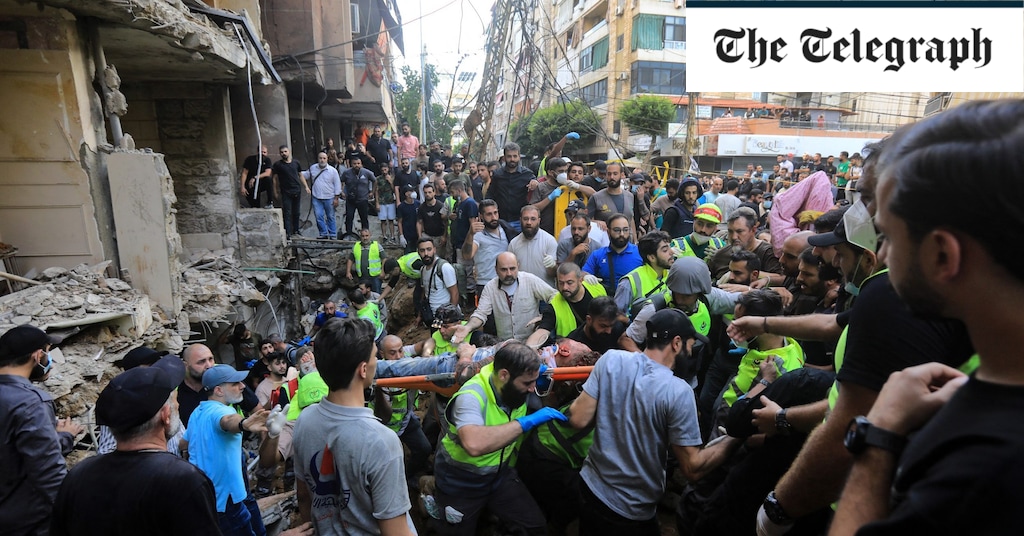
The reported killing of Ibrahim Aqil, identified as Hezbollah’s commander in charge of special operations, marks a return to a more conventional form of Israeli military action after this week’s double wave of synchronised sabotage attacks on the movement’s hand-held devices.
That does not make it any less potent tactically, however. Blowing up the pagers and walkie talkie radios used by Hezbollah fighters brought death, disruption and consternation to the movement’s rank-and-file – but spared senior commanders who did not use the devices.
This afternoon’s airstrike targeted the top level of Hezbollah’s command and control structure and comes less than two months after the assassination of Fuad Shukr, who, like Aqil, sat on the Jihad Council that runs the movement’s military wing.
Other senior military figures in Aqil’s Radwan Brigades, a special forces unit with a stated aim of infiltrating northern Israel, may also have been killed.
There is no doubt that this is therefore another startling Israeli intelligence success story, demonstrating Israel’s ability to strike Hezbollah at every level.
It is also worth bearing in mind that Shukr and Aqil eluded the United States for decades. Both were instrumental in orchestrating the attacks on the US embassy and a Marine barracks in Beirut in 1983, killing more than 250 Americans.
So there is no doubting Israel’s military might. Questions about whether these individual successes constitute an effective strategy, either to force Hezbollah to climb down or to pave the way for a negotiated settlement, will continue to persist, however.

